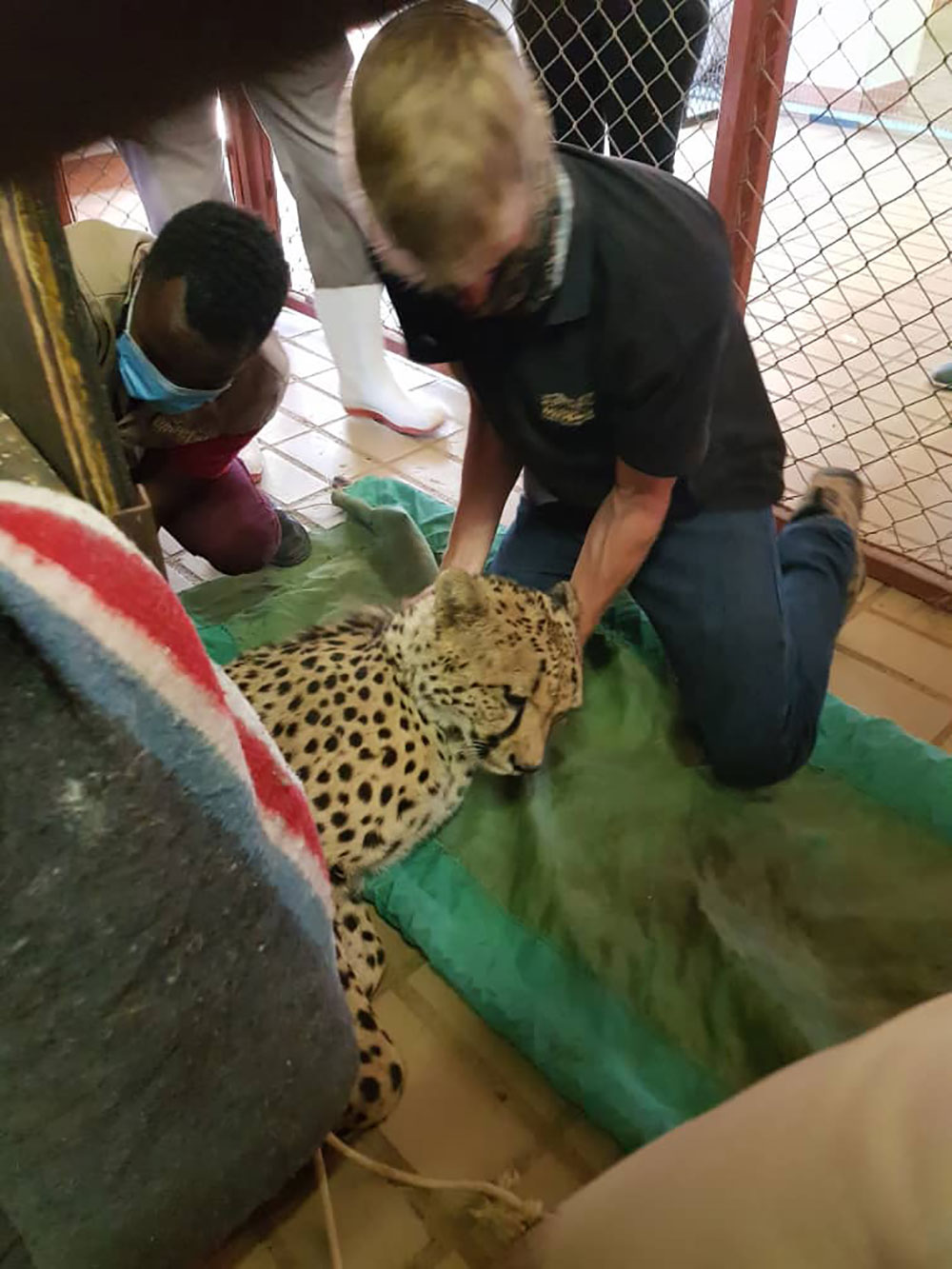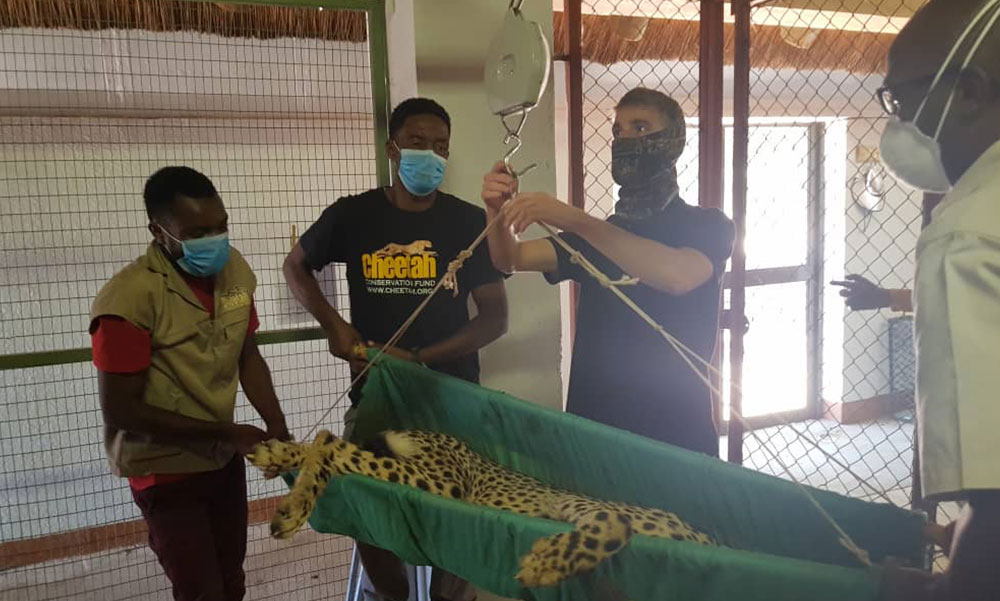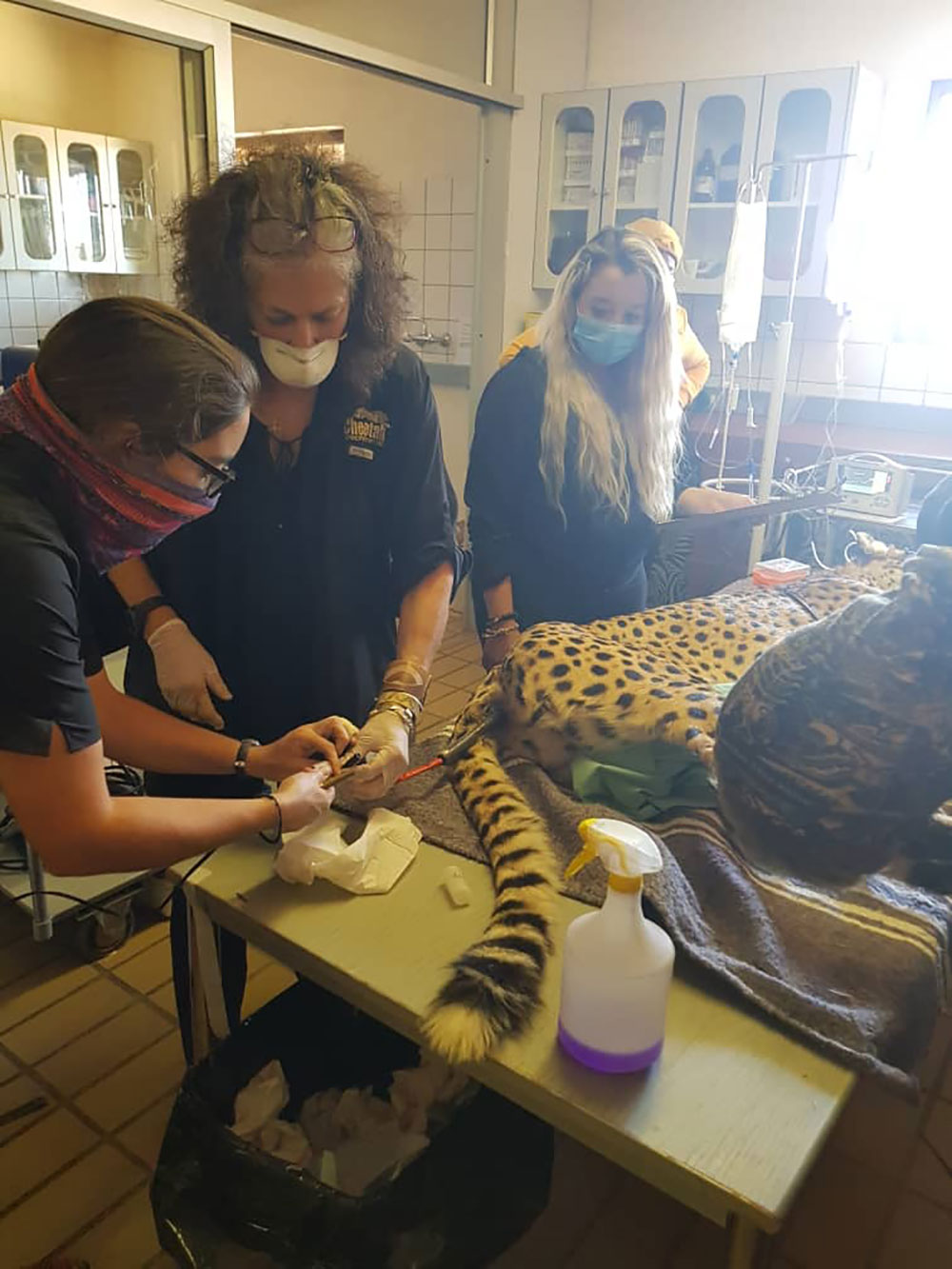Cheetah Conservation Fund Continues Work Despite COVID-19 Closures
-

- by CCF Staff May 18, 2020
Otjiwarongo, NAMIBIA (18 May 2020) – For the core team of ecologists, animal care, and biomedical staff living in voluntary isolation at the CCF Field Research & Education Centre in Otjiwarongo, Namibia, the daily business of saving wild cheetahs carries on. On 5 May, the first calls from a local farmer were made to the Farmer Helpline at CCF East – Carnivore Conflict Field Station requesting assistance with two cheetahs in a capture cage at a game camp. CCF immediately contacted the Namibian Ministry of Environment, Forestry and Tourism (MEFT). With COVID-19 lockdowns, CCF staff could not travel to the farm to collect the cheetahs. Responding quickly, two MEFT Rangers collected the cheetahs from the farm and brought them to the CCF Centre.
Functioning with only about half of its 25-person team, the CCF cheetah scientists conducted comprehensive health examinations of the two cheetahs. Working at a more deliberate pace and wearing masks to cover their noses and mouths, the team checked the animals from head to toe for signs of injuries or chronic health issues. They weighed and measured the animals, drew blood and tissue samples, and photographed each cat. Although this activity has taken place hundreds of times over the past three decades at CCF, it has never happened during a pandemic.
“The procedures went very smoothly, thanks to our well-trained team. The two adult male cheetahs were trapped on a game farm and were in excellent condition. They will be fitted with satellite-radio collars and released back into the wild as soon as a suitable place is determined, likely before the end of this month,” said Dr Laurie Marker, CCF Founder and Executive Director. “I am very happy to report both males are very healthy, and big – 45 kg and 47 kg – and they were exhibiting normal cheetah hunting behaviours by seeking wild game prey. Given that male cheetahs form coalitions with male siblings and live together for life, it is likely these two are brothers. The collars will enable our team to monitor the cats’ movement and respond if there is a problem, increasing their chances for survival”.
Under the leadership of Dr Laurie Marker, CCF’s research team focuses on the biology, ecology and conservation strategies of the cheetah. The team has tagged and released more than 650 cheetahs back into the wild and radio-tracked more than 60 during a 15-year study, both scientific firsts. CCF has collected, stored and analysed biological samples from more than 1,000 cheetahs, resulting in one of the largest databases for any threatened species.
“I can’t thank our team enough for the work they are doing everyday through this difficult time. It is always very exciting to help rescue and return cheetahs back into the wild, onto the landscape they belong in. This is why Cheetah Conservation Fund exists. I am so grateful we can continue our mission through this difficult time. I would like to thank our donors for supporting CCF during this unprecedented crisis”, said Dr Marker.



# # #
About Cheetah Conservation Fund
Conservation Fund (CCF) is the global leader in research and conservation of cheetahs and dedicated to saving the cheetah in the wild. Founded in 1990, CCF is an international non-profit organisation headquartered in Namibia. CCF is celebrating its 30th anniversary in 2020, making it the longest running and most successful cheetah conservation organisation. With ecotourism activities on hold, at CCF and throughout Namibia, CCF staff who live off-site but chose to work through the pandemic moved into CCF housing for safety and convenience. CCF is a self-contained community that grows much of its food on its Model Farm and generates its own power, and its contact with people beyond CCF land is controlled.
MEDIA CONTACT:
Dr Laurie Marker, [email protected] or +264 81 124 7887
Susan Yannetti, [email protected] or +12027167756
Related Reading

